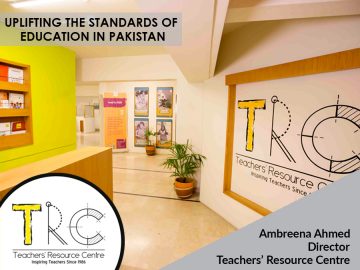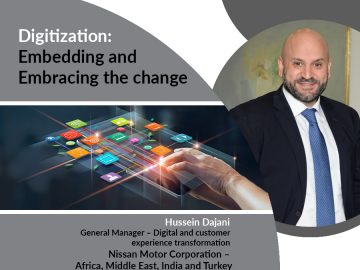
Raheel Iqbal, Managing Partner at Codebase Technologies discusses API-driven digital propositions and how Codebase Technologies is helping to build future-ready digital finance brands.
While explaining the inception of Codebase Technologies, Iqbal said, “Codebase Technologies is a global leader & one of the world’s fastest-growing open API solution providers. Founded two decades ago in 1998, Codebase Technologies embodies the idea of “Demystifying digital financial services,” & we are steered by our vision of “disrupting the way technology is utilized, for a greater purpose.” Made up of a team of 200 amazingly talented banking and technology specialists from across the world, Codebase Technologies is a trusted partner for multiple internationally acclaimed financial & non-banking financial institutions.”
He further added, “At Codebase Technologies, we were early to recognize the real potential of digital banking and APIs, which gave us an huge advantage. Our Digibanc platform consists of multiple technology stacks developed on an Open API micro services architecture which are being actively used by leading financial institutions across the world to empower their customers with state-of-the-art banking services. In fact, 2 out of the 3 biggest Islamic banks in the world are using our Digibanc platform. Another example is, our Digibanc Fintegrator which is a multi-award-winning Open Banking integration platform that allows all Digibanc components to integrate with all legacy systems and currently includes more than 500 industry-grade, out-of-the-box open APIs designed to empower banks and fintechs to frictionless collaborate and deliver innovative digital banking experiences to their customers, quickly and cost-effectively.”
Mr. Iqbal highlighted how the concept of Open Banking is steadily gaining traction across prominent economies globally, however, Pakistan is yet to witness prominent players openly embracing an Open Banking approach, he said that, “Recent research suggests that in Pakistan there is considerable favor towards its adoption & there are a few companies pushing this in Pakistan. The main hindrance towards the adoption of modern technologies such as open banking in developing economies like Pakistan is making sure the right regulation is in place to support development. Open Banking is a particularly fickle technology which requires strong regulations and interoperability between banks and partners to really work for the customer. The benefits of open banking are becoming quite clear in leading open banking markets like the UK, Bahrain and Australia where customers are reaping the benefits of more choice, better control and more innovative products & services. ”
He also added, “Open Banking has the potential to revolutionize the lives of Pakistani ’s by giving them more choice and better ways to aggregate and manage their accounts. Even for businesses, Open Finance can be a real game changer in the market. However, for open banking to work you need the buy in of all parties with strong government support and regulations.”
Adopting technologies such as Open Banking in large demographics like Pakistan can be a difficult task, Iqbal while commenting on challenges said that, “There is a significant segment of the population (made up of young millennials) who want to use new-age banking technologies such as open banking and the authorities need to resolve certain challenges if these ambitious plans are to be actually realized. A good place to start, in our opinion, would be to take a cue from nations such as Bahrain, who have embraced Open Banking with open arms & design regulations & incentives for companies in Pakistan to follow suit. The great thing is that Pakistan doesn’t have to start from scratch, multiple open banking regulatory frameworks exist, the latest framework being launched in Nigeria, so the government will no doubt be looking to adapt either a regulatory or industry lead model and tweak it to suit the needs of Pakistan and the nuances of the market and it’s customers.”
The new initiatives regulators in Pakistan are taking are commendable, Iqbal pointed out and appreciating such initiative said that, “The success of Digital Roshan accounts, largely pushed by the State Bank of Pakistan (SBP) is a cherished moment for all of us in the industry; however, there is still a long way to go. We were involved in creating the first Digital Roshan Account for DIB Pakistan which was a great success. Recently, SBP launched a licensing and regulatory framework for setting up digital banks in Pakistan so we’ll no doubt be seeing the industry really pick up speed. There have alreadybeen around 20 applications for digital banking licenses since the launch of the new framework, and these came from a diverse range of applicants, including domestic commercial banks, microfinance banks, electronic money institutions and FinTech players. This really shows how excited companies are to start offering digital services to customers who are really demanding of innovation.”
We are witnessing the trend of banks partnering with FinTechs globally, Iqbal shared his opinion on how this can be a success factor for financial institutions in Pakistan, he said that, “The strategic partnership between fintechs & banks is a win-win for both stakeholders & this has been well demonstrated across multiple global economies. The reason behind this simply being, fintechs deliver the technology & banks bring decades of experience & consumer trust, both of which are crucial determinants of success. Collaboration is a key factor in driving digital banking, innovation and financial inclusion. The days of banks and institutions working in silos are becoming a thing of the past. The winners of tomorrow in terms of the banking and fintech industry will be those brands that can collaborate and innovate together with a diversity of partners, each bringing their strengths into the picture. APIs have been really crucial in enabling this collaboration by letting FinTechs and financial institutions integrate and collaborate seamlessly in new ways.”
He further added, “In my opinion, adopting such partnerships in economies such as Pakistan will also lead to similar success. One reason for my belief is because, as Pakistan is an upcoming economy & most of its customers are risk-averse, meaning they bank on “trust,” a strategic partnership where banks deliver the trust & fintechs deliver the technological finesse will do wonders for financial inclusion & revenue generation, if appropriately executed.”
Pakistan’s financial industry has great potential and rapidly evolving, Iqbal while sharing his opinion on what the future holds for financial industry said that, “It is my belief that within the next 5 years, it will reach a stage which all of us can be proud of in terms of banking the unbanked, innovative services & of course, financial education. Fintechs and digital banking have huge potential for creating a positive impact on people’s lives, lifting them out of poverty, helping them start businesses, and helping them manage their money more effectively. I see the next 5 years of banking in Pakistan really reflected in how people’s quality of lives will improve and the nation’s prosperity increasing as a whole, not just from a financial point of view, but from a well-being aspect as well.”
He concluded by adding, “We recently launched a dedicated BNPL component that’s delivered through our Digibanc platform which allows anyone to launch their own BNPL offering. This was created in response to the market need for an alternative to partnering with existing BNPL providers. We have some exciting plans for the future that we’re co-creating with our partners and clients. So watch this space.”










